|
-Rev Melissa Fain- First: the state of church pre-Covid-19A article in 2018 found that in 2004 only 17% of the US population attended church on a regular basis. It was a stunning difference from a Gallup poll which found the number to be 40%. The difference happened when people tried to reconstruct their life for pollsters, they saw their life as shinier and nicer than it actually was. It's called the "Halo Effect." There's an episode of Blackish where Dre and Bow believe they are church people. Only when they try to recall all the times they went to church, they were all on Easter. Conversely, those within the walls are hyper-involved. In fact, many are turning to small group meetings over and beyond the large sanctuary worship. A Pew Study found that the church is getting older, as in the median age of congregants have gone up from 46 to 49 since 2007. The study also saw that the churches that are growing typically have a lower median age compared to the the churches that are dying. Throughout the years, every church treasurer at every church I've been employed to, has expressed that Easter is the biggest Sunday for offering. I also know churches are boldly expressive when it comes to the good news, and suddenly shuddered when it comes to the bad. Considering how difficult it is to find even one article about the state of the church during this pandemic, I'm prone to believe things are not going well. Second: The Church camp effectYou can fake Utopia in small doses. Really. It's called Church camp. You take a hundred or so like minded Christian kids, and put them together for a week. You teach them the theology they already believe, and for one short week you live Christ's Kingdom on earth. It is terribly misleading. Yeah, I said that right. It's not real. It never is. As a Church Camp counselor and director I've seen behind the curtain. All the adults know it would all fall apart if it lasted longer than a few weeks. Youth would begin to protest the schedule, or not spending enough time with their friends. (They do that anyway, just FYI.) The cost would become too prohibitive for the lower income campers. The adults would lose it. We love the kids, but we can't be bubbles and sunshine for months on end. We also want to be adults. We set up a facade, give the youth a beautiful week of pretend, and then tell them to make that world at home. We don't bring real. We don't explain that their abuser will still be there when they get home. We don't tell them that many people don't want to buy into Utopia because of the front loaded work it requires. We tell them there is a world without bullies, but the ones at school still exist. So we pretend in church. Yeah, I said that right. We create this beautiful bubble of perfection every Sunday morning. Many of these churches don't even discuss the real outside world aside from a quick skim of the surface. Outside the building good people die. Bad people win. Christ engaged those situations, yet we gloss over them. Why? Because church has turned into a pretend utopia. That's why those inside are hyper-religious, and those outside are hyper-disconnected. Church stopped caring about the reality of the outside unless it's to hand something out. If this makes you uncomfortable, good! Discomfort can help us grow. If you are only in a church that makes you comfortable, you are doing it wrong. Third: The Covid-19 EffectA few things happened when an entire country went into self-isolation:
Finally: The Way AheadWhether it's 40%, 17% or something in between of the American population who attend some kind of worship, a majority of people are outside the physical church. A majority of funds are going into the building. Doesn't that seem wrong? Isn't it time to start seeing our own backyard in the same way we think of missions overseas? I made the conscious choice to go where the majority of God's people have gone, back when that choice was still a choice, and not a mandate.
I have to ask, why go back? Why continue that illusion, when you know what it is? Christ is real. When Christ is real, we go to reality to find Christ. See what I mean? Christ is perfection, but lives in imperfection. Why? Why not find truth, because anything else is false. -Rev Melissa Fain- It still shocks me today. I meet up with someone, and they off-handedly thank me for something I posted online. It's not that I think anything I've personally created hasn't been watched or read. I know it has. It's that what is being watched and read means something to someone. When I preach a sermon in a church I can immediately see people squirm when I say something uncomfortable. See them perk up when the words are hitting home. Hear their thank you after they've immediately processed my words. When I teach in any capacity I can immediately know if a group of people have processed the lesson or if they are still not getting it. I have struggled with others to understand a concept. I have celebrated how amazing it is to see that "I get it" face. All that is lost online. Sure, you like. love, or share, but I have no idea why. Are you just being kind? Did you even see or read? Are you confused and you're too kind to ask questions? Our connection has been broken by the expanse of the world wide web. That's the nature of the internet. We submit content across multiple platforms, and like a written letter, we are not able to see the initial reaction to our submission. There are many who are discovering this for the first time. Perhaps email, private messages and the like were for secondary connections or setting up primary connections. When the pandemic hit, all of it went online. Even that two second pause on video conferencing has disconnected us. I'm going to suggest a couple of ideas as we move forward and move on. I'm not going to suggest these ideas completely upend your ideas about the internet, but I hope, if nothing else, they leave you thinking. 1. Our experiences have been different.Y'all. I'm just gonna put this out there. The internet is a very selfish place. I don't think many of us are trying to be selfish, it's the natural byproduct of the levels of disconnect. The internet, up until recently, has been a tool for what we want. We want to waste time- go to a social media site. We want that specific item- go to an online store. We want to find out how many species of penguins there are in the world- go to a search engine. It just makes sense that when we read someone else's words we are adding our own inflection, understanding them from our device, in our own homes. It's really difficult to imagine what someone else reading the same words might be going through. It's also difficult to understand that older generations can't even pull up a video to watch a Zoom worship, and youth can't focus for longer than 5 minutes. (And 5 minutes is a LONG time for them.) Some of us adjusted years ago, and we have friends online we've never physically met. We've learned how to emote within our words since we cannot hear one another's inflection. What it comes down to is we are not all in this together. We all come from different situations. Some can comfortably read this while sipping coffee. Meanwhile, there are times all of Fig Tree's mediation's are downloaded all at once overseas. Their situations are diverse- from churches that don't have the means to buy theological books, to churches that are illegal and pulling information from the internet is their only way to learn about Christianity. They will not be comfortable while reading this. Then there are those looking for hope in their own hopeless situation. They live with their abuser. Being selfless online is extremely difficult, but it is possible. It requires support for the sake of others. It needs empathy. 2. The natural loss of one or more senses.Dr. William Willimon took part in an interview during the 2020 Festival of Homelitics. made a statement that will stay with me for years. Paraphrasing, he exclaimed: If there was one thing this pandemic taught us is that nothing is better than the real thing! I got the sentiment, he was mourning the loss of the physical. The missing smells of old hymnals. The way one's voices carries in the sanctuary. The immediate connection of a private conversation. For him, those things are sacred. For others though, those things are dangerous and scary. The American Church experience has, for the most part, been a selfish enterprise. (I can feel you bristling with that statement. Let me explain.) Back before the pandemic there were a growing number of people who were wounded by the Church. Some were pastors. Some were congregants. Their wounds were made deeper by this disconnect that kept happening with their stories. I can sum it up with one sentence, "Sure, you're experience was bad, but my experience is good." Basically, all the wounds in the Christian Institution can be healed by ignoring and moving on. If the wounded can't ignore and move on they are ghosted, cancelled or both. It makes the sanctuaries you know and love a very scary place. That being said, while you might be missing the sense of smells and sounds, someone else is missing their sense of connection. Their connection was lost way before this pandemic hit. Just something to consider. 3. Be intentional about engaging others.I started this with my shock at discovering my words mean something. It was a reminder that we need to step outside ourselves for a moment and consider what our words would mean to someone else. Raise someone up. Show them they have value. If you say you support what they are doing, show them what that support means. Online community is necessary in this day in age and it begins with us engaging them, not them engaging us. It also means choosing to leave negativity alone. This one has been extra hard for me, as it's super easy to buy into riot. It's too easy. Instead, step away and find something to support. It's so much harder, but so much more rewarding. In two weeks I'm going to do a Summer movie series. I'd love some of your suggestions to add to the list!
http://www.figtreechristian.org/meditations/fig-tree-goes-to-the-movies-again -Rev Melissa Fain- Years ago, for Advent, I did a movie series here, where I connected the different themes of Advent (or pre-Christmas) to Christmas movies. It is still one of my favorite series. We are going to do it again! This time, instead of being a written meditation, it will be part of the message during our livecast worship! Suggest a movie below, and I'll collect all or some of the options, and share our Summer Movie Schedule. It will start after Pentecost. (Pentecost is the celebration of the Spirit descending on the Disciples, and happens 7 weeks after Easter. This year Pentecost is May 31st.) If you have a movie you'd love to hear connected to the Bible, submit it below. Here are some guidelines for submission:
-Rev Melissa Fain- This meditation was written after watching the two part Simpson's Episodes, the Warren' Priests. On my bookshelf sits many books, but next to my "Gospel According to Harry Potter," and my "Gospel According to Starbucks," sits my "Gospel According the Simpsons." I know, I'm aging myself. No one makes those books anymore. It's too Christo-centric. Seriously, I haven't even looked at them in years, and all three would be gathering dust if it wasn't for the fact that I recently dusted my bookshelves. I don't watch Simpsons much anymore either. It just doesn't engage me the way it used it. Then the Simpsons took a two-part episode discussing the relevancy of church, and I found myself pulling up Hulu to watch. What I've come away with was a shallow look into the real issues plaguing modern church, and they take the face of the different characters. It looks into our language as we fail to see how both sides were wrong, and how we dismiss either side without really exploring why we are dismissing them. It's not the Gospel According the Simpsons. It the Church According to the Simpsons. Rev Lovejoy- Tradition over Substance As the first episode begins, Rev Lovejoy is delivering a sermon to a near empty sanctuary. No one wants to be there, and those remaining is anticipating the end of the service. It was the problem so many churches were facing leading up to the lock down. The attendance was dwindling, Worship was static. What was the point? No, really! What was the point? Church had become a chore, not an experience. A check mark, not a relationship. What The Simpson's failed to do was capture the fear that lived in all these ministers. Do you think most of us were ordained to uphold the status quo in dying churches? No! They played the problem like it was Lovejoy's the whole time. The writers played it like the congregants would want change, if they only knew it existed. In reality, the problem was shared between Lovejoy and the congregants. Lovejoy was stuck in the word "tradition," keeping to the routine like an old safety blanket. The congregants were encouraging this behavior. The Congregants- They triggered me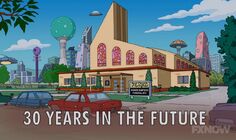 It was played for laughs. The congregation heard Bode preach, the newly hired youth minister, and everyone immediately fell in love. A small group of congregants secretly met, and decided to unceremoniously fire Rev. Lovejoy so the new minister could be the lead pastor. Older ministers secretly fear it. The shiny new minister taking their place. In reality, the shiny new minister is often the one being secretly canned. The new pastors are the ones who symbolize change and revitalization, and it scares those who just want to keep it the same. Often times, those are the people with the power, because they are the ones with the money. They have family that goes back generations. I was triggered because that's how it happened to me. A few decided for the whole. I was the shiny new minister who came with the promise of change. I had to go. I found myself worrying for Lovejoy. Did he have a pension? What was his retirement? Being in that church for so long, did he have any friends who were not church members? The congregants were reacting. That's actually what congregants do. They see something good, and find the quickest route to reach it. Real change always takes time, and that's where the congregants always fail. If it's not quick and easy, than it rarely happens. We live in a culture of instant gratification. It has bled through into our Church culture. Bode: Why did Lisa fall for that? Look, it's actually nice to see the overly pleasant Ned Flanders being taken down, but in this episode he was actually right. I'm shocked too. I have this sneaking suspicion he'd tell his boys to avert their eyes if he saw me walking down the street. He was struggling with maintaining the sacred in his sanctuary. In reality, that was his fight, and it was not the fight Bode eventually fought. To earn the people of Springfield new sacred space, the previous space needed to be dismantled. That was a valid conversation for Flanders to have with Bode, but it never happened, because Bode never knew why Flanders had a problem. That was the first sign that Bode was not right either. The modern church movement will flush the traditional church down the toilet to get their guitars and flashy production. They'll fight the scriptural fight without actually having the real scriptural fight. The fight isn't about God's love. The fight is about God's presence, and Ned was holding something sacred and right. (Stupid Ned Flanders.) I think the reason Lisa bought the lie had to do more with that. What was sacred to Ned was not to Lisa. Bode's theology was a many path model. That is, there are many paths to God. Lisa was being told she was not alone in her personal journey. It was just, Ned's path was not included in Bode's many path model. That's where the lie came in. Also, many path theologians don't typically burn Bibles. Bible Burning Was Where Bode Fell Apart"Lisa, I was wrong." Bode was 19. He was doing something bold because he was foolish and young. Speaking personally for a moment: I was once young and stupid, now I'm only stupid. Let me amend that, in my older years I realize when I'm stupid. That's wisdom. Well, part of wisdom. Multi-path theologians don't burn Bibles. They read the desert fathers, the Koran, and ancient Hindu texts. They see the sacred in it all and hold it all with reverence. Those who burn Bibles don't typically apologize for it later. Even Atheists know how special the Bible is to believers. You believe in something with the action of burning sacred text. Perhaps you don't believe the text holds value. In burning the book you are telling them they are stupid in their belief system. Perhaps the Bible was old and you were retiring it like an old US flag. The act of burning becomes a funeral of sorts. Perhaps you are making a statement against a specific religious organization. The act of burning becomes a burning of a specific theology. This is where Lovejoy and Bode were wrong for similar reasons. Which is worse, burning a Bible, or letting it gather dust in an empty pew? In that way, Lovejoy was no better. Buried or cremated. What's the difference? In both cases, the Word is dead. The Beginning of Lent"Lisa, you're bringing down our Lent. Even the fire eater is sad."
This one throwaway joke by Homer really brought it all home for me. We were about a quarter through Lent when Covid put us all in isolation, bringing churches online, and completely changing everything, for (I believe) forever. We won't be spending our lives stuck at home, with only a select few working in businesses. How we do things will change. Schools will be more diligent about not letting sick kids stay. Works will have stay-at-home employees. Churches found out how shut-ins feel. I don't think face masks are going away any time soon. The whole two-part-episode dealt with issues that were very pre-Covid problems. The camera makes things "more." What do I mean by "more"? Depending on the angle people far apart look close together, and people close look far apart. You have 30 seconds to tell the same story that took you 5 minutes in real life. It's condensed, and doesn't do well with things that are watered down. Church was watered down. Messages were fluffed. Actions were padded. There was lots of getting by and just going through the steps. Homer was reminding us that those pre-Covid services were empty. Yeah, we gave up something for Lent. It was fun! I can lose those few pounds while I give up that sugary whatever it is I gave up! This episode ended with me feeling like I was in their future. I couldn't be angry or upset with the faith traditions in the episode, because neither one can exist anymore. We don't live in that world anymore. What will be when we begin this new world? I hope to God it was better than what we left, from both sides. |
Categories
All
Archives
October 2023
|


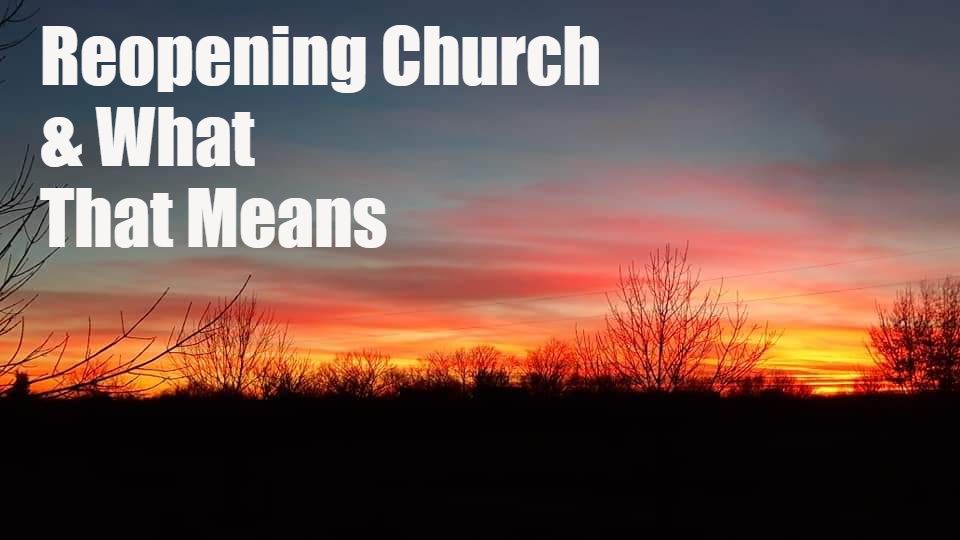
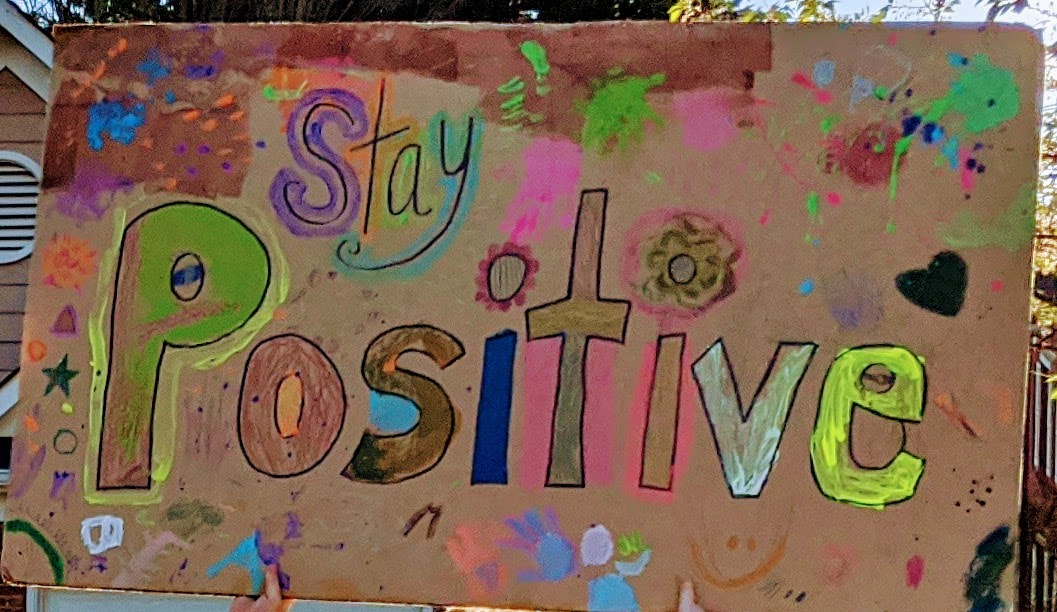
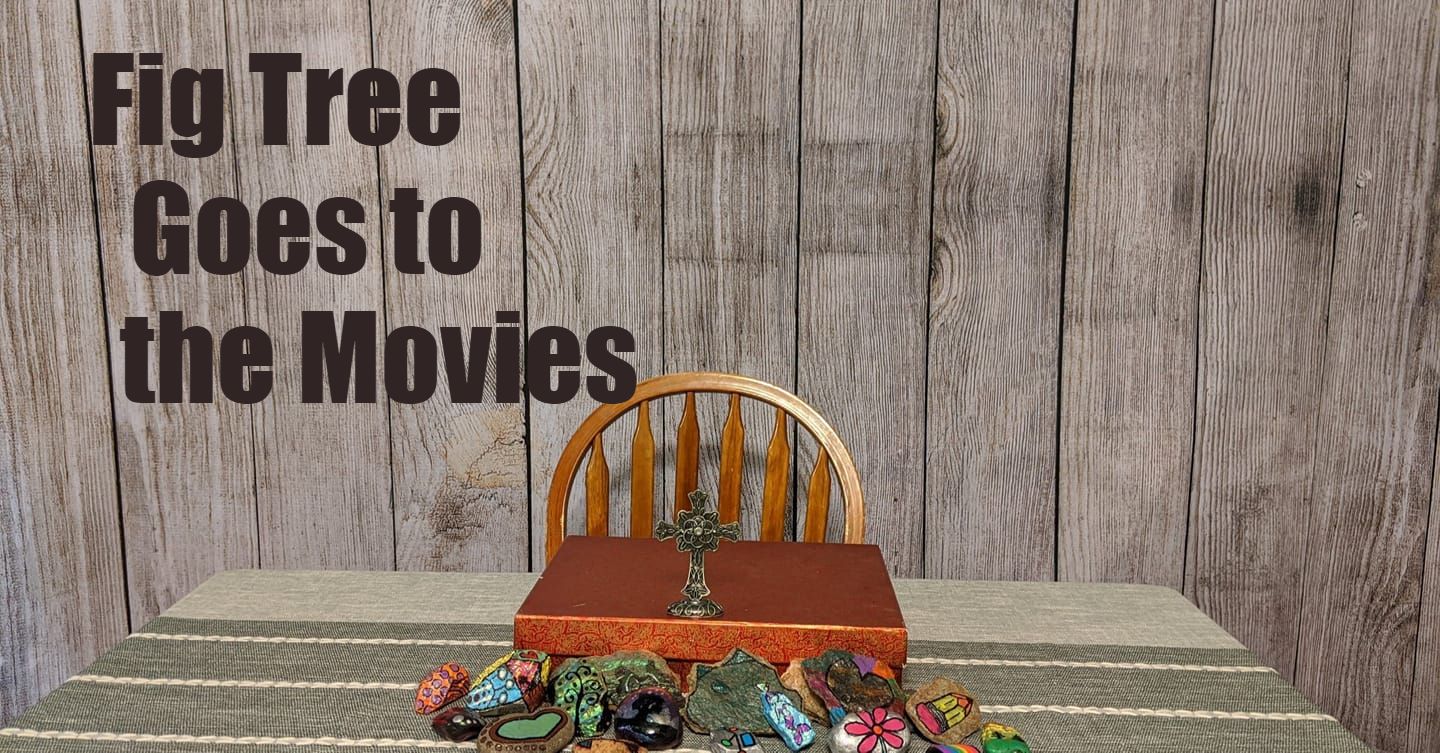
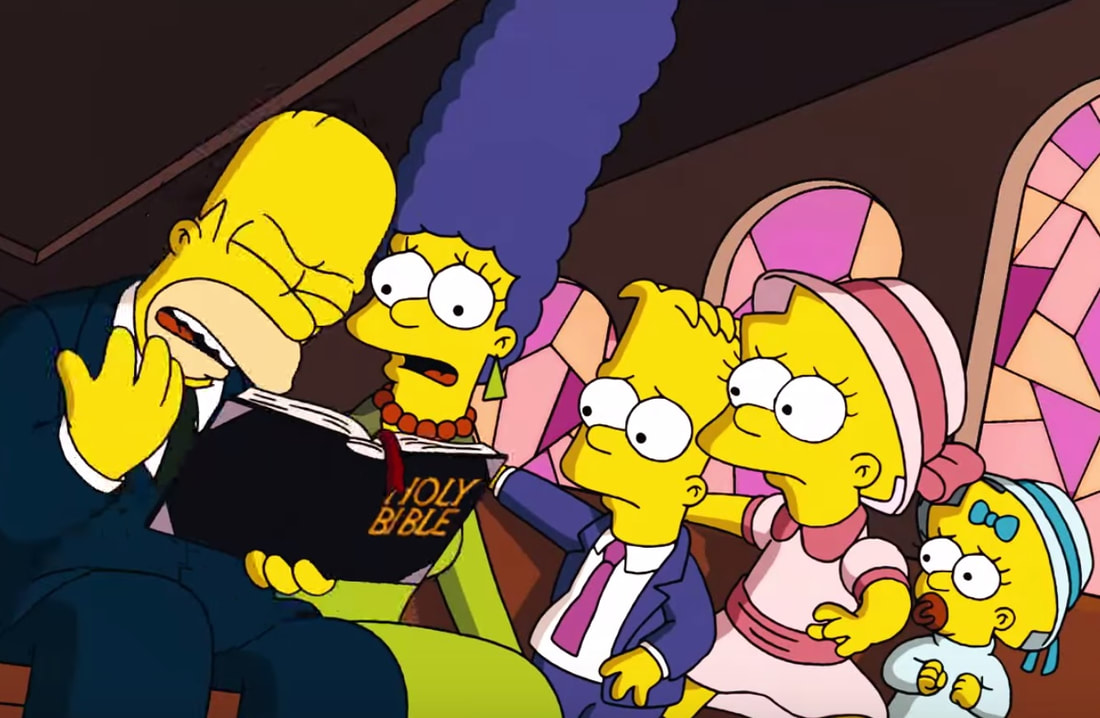

 RSS Feed
RSS Feed